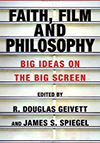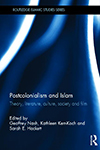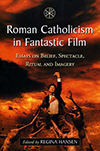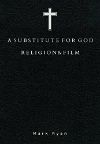- Author(s): Anthony John Kinik,
- When: 1997-10
- Where: University of British Columbia
This thesis is a study of the apocalyptic visions and forms that cropped up in the British cinema of the late 1980s and early 1990s with great frequency. It is my belief that this apocalypticism was directly related to the socio-political situation in Britain during this period—a situation that was largely the result of the rule of Margaret Thatcher and John Major, a situation that was largely the result of "Thatcherism." Furthermore, I believe that such a turn towards apocalyptic form fits into a tradition wherein crisis, sectarianism/radicalism/leftism, and apocalypticism have been closely tied over the course of history. Thus, my argument proceeds in the following manner. Chapter one takes a look at the roots of the apocalyptic tradition within Judeo- Christian culture and attempts to specify this tradition's principal characteristics, and how this tradition was linked with sectarianism and crises—both "real" and "perceived"—from its inception, even if the tradition has been largely dominated by more conservative interests ever since. Chapter two provides a "case example" of this particular branch of the apocalyptic tradition, examining the English Revolution and how it generated radicalized forms of apocalypticism. This chapter then devotes special attention to what Christopher Hill has termed the "experience of defeat" amongst the Revolution's radical Nonconformists—the political and spiritual swoon that occurred when the tide turned against the radicals, and the Restoration was established—and how this experience, too, resulted in apocalyptic texts. Chapter three is a study of "Thatcherism": where it came from, how it made its way through the 1980s and into the 1990s, how it sowed crisis all along this path. This chapter lays stress upon how Thatcherism provoked a "crisis of the left" that creates a resonant parallel with Hill's "experience of defeat." Chapter four focuses on the films of Derek Jarman, Peter Greenaway, Patrick Keiller, and Mike Leigh during this period: how they frequently turned towards apocalyptic visions, how these visions were directly linked to Thatcherism, and, especially, how these visions were the result of the "crisis of the left" provoked by the rule of the Thatcher and Major administrations.







